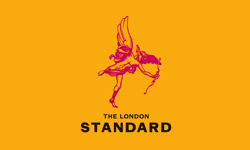The article reported on the fundraising efforts of a 13-year-old girl to raise money for ME Research UK, inspired by her friend, the complainants' daughter, who has the condition. The article included a photograph of the two girls, named them, and noted that the complainants' daughter has ME. The complainants said that they had not consented to the publication of their daughter's name and photograph in connection with information about her medical condition. They had previously chosen to inform people of her condition only when necessary, and the article had therefore caused great distress.
The newspaper apologised to the complainants, saying it had intended only to support the girls' fundraising efforts. Its photographer, who had attended the event, had been given information about the child's condition by her friend (who organised the event) and had not realised that it was confidential. In addition to its apology, the newspaper offered to make a donation to charity, but the complainants did not accept that this was sufficient.
In its ruling, the Commission noted the "significant potential for intrusion" posed by the publication of medical information, and noted that "appropriate checks" must be made before publication of such detailed. It expressed concern that the photographer had apparently acted on an assumption that the information was not confidential, without verifying this. The complaint was upheld on the basis that the article constituted an intrusion in the child's private life in breach of Clauses 3 (Privacy) and 6 (Children) of the Editors' Code.
Charlotte Dewar, Head of Complaints and Pre-publication services commented: "The publication of medical details poses a serious potential for intrusion, and the issue of consent is critical. In this instance, there was an additional factor: the information related to a child, who receives additional protection from intrusion under the terms of the Editors' Code of Practice. The Commission accepted that the newspaper had intended only to support a local cause, but its failure to obtain proper consent from the child's parents for the publication of information about her condition led to an unfortunate breach of the Code."
To read the adjudication, which has been published on page 2 of last week's edition of the newspaper, please click here.
The Editors' Code of Practice can be read in full here.










